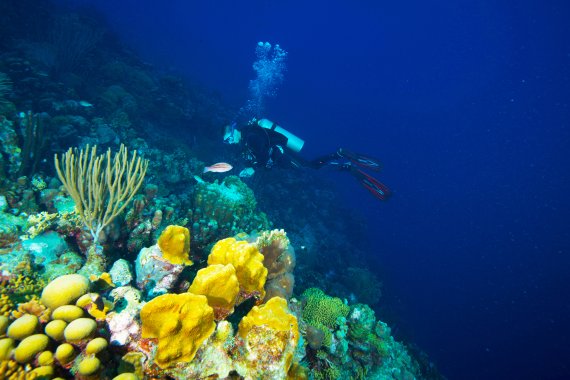For his PhD research in the Aquatic Ecology and Water Quality Management group, De Bakker analysed a forty-year-spanning photo series of sixteen pieces of reef. Those three-by-three-metre quadrants were first photographed in 1973 and have been captured almost every year since.
Cyanobacteria
De Bakkers’ analysis shows that the coral has been largely repressed by turf algae, macroalgae and cyanobacteria. The main cause of this is pollution. De Bakker: ‘Pollution enriches the water with nutrients. That is good news for algae and other organisms, which can grow quickly with more nutrients. But corals are at their strongest in poor conditions. Pollution therefore weakens their competitive position.’
Read the interview with Didier de Bakker on the website.

 Photo: Erik Meesters
Photo: Erik Meesters